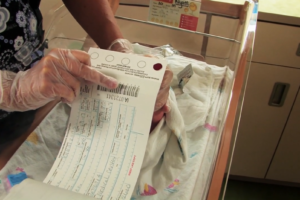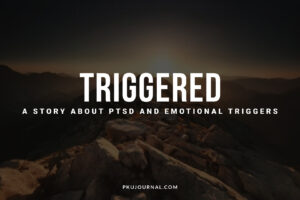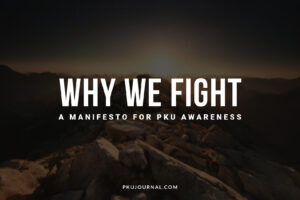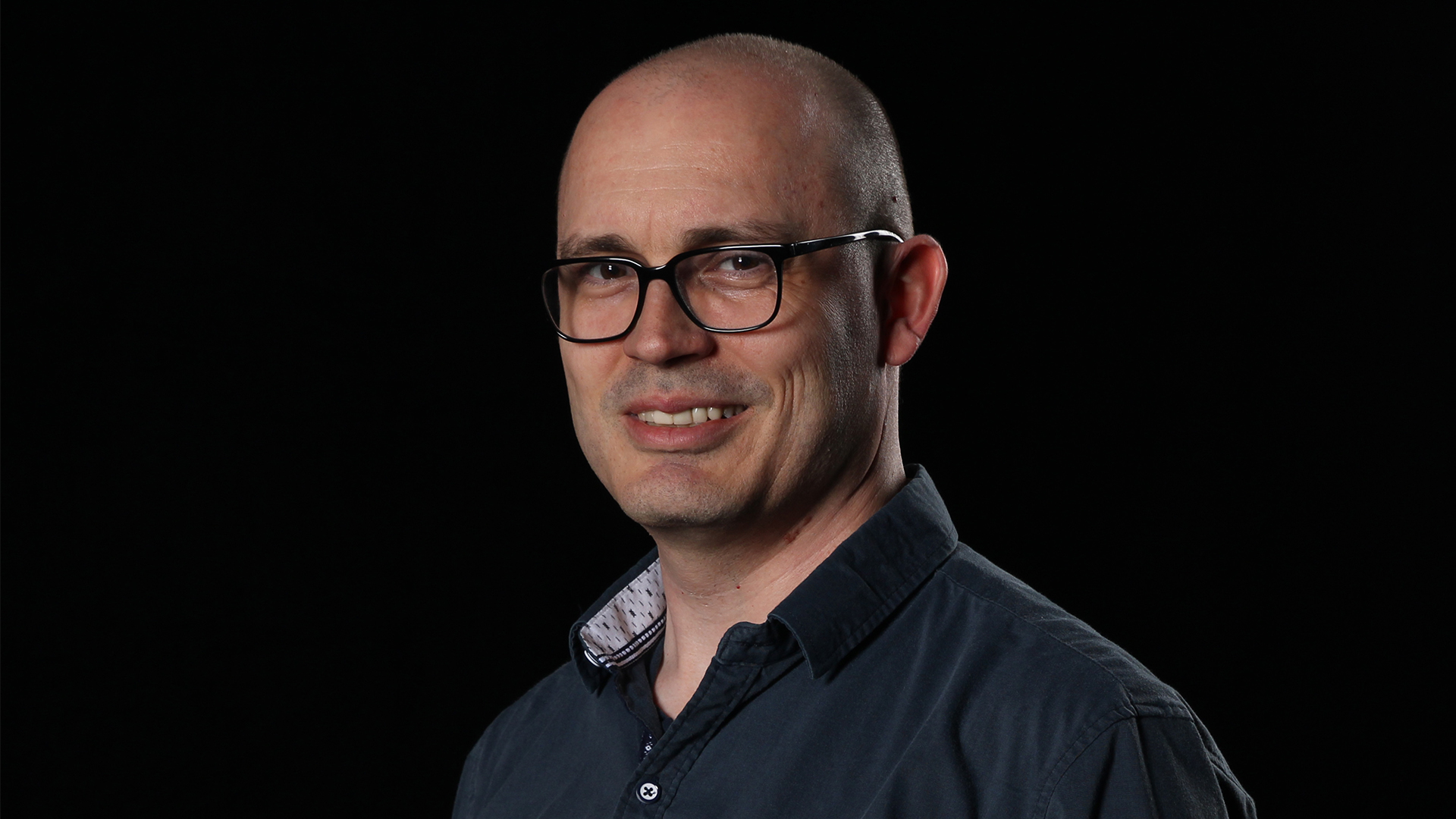Making healthy choices is an important part of becoming a whole, integrated person. We live in a society that demands so much of our time and attention that we often neglect what truly matters. This is an episode of Never Give Up: A Rare Disease Podcast, and in it, I meditate on how I’m learning to make healthy choices every day.
Healthy Choices Start Now
Have you ever had one of those moments when you’re like… “Why did I do that?” OK, we all have. For many of us, it happened frequently when we were in college. Or in our twenties.
I was never the partying type. But I made my share of stupid mistakes at that age. I almost killed myself in a TV live truck when I was in my twenties. But that’s a story for another time. Let’s just say that I had a habit of thinking I was invincible back then. I was working too quickly, and was very close to electrocuting myself in the truck.
You’d think as we get older that we’d stop making stupid mistakes. That wisdom automatically comes with age. And mostly, that’s true. But no matter how old we get, we can all have our moments.
I had a moment like that a few months ago… when my rational brain stopped working, and I was acting on full instinct.
It made me realize something… As much as I say that I value and prioritize mental health… I have my moments when I completely ignore it.
I’m trying to accept where I am in life now… that I’m no longer in my twenties… that I’m not invincible… that I’m in my forties now and I’m supposed to be a responsible adult.
But sometimes… it’s just so easy to forget.
A Peaceful Friday Morning
I’ll admit it. I’m addicted to coffee. I don’t understand people who don’t drink it. I have to have coffee right when I wake up. And I don’t drink cappuccinos or lattes either. It’s just drip coffee for me, with a little cream and a lot of natural sweetener. Oh, in case you’re wondering… How can I even talk about cappuccinos or lattes since they contain milk, and I have PKU? I’m one of those who’s been able to consume more protein thanks to some of the medications now available for the PKU community.
Besides the ritual and act of preparing and drinking coffee, I love hanging out in coffee shops. It’s one of my favorite things in the world. To spend a few hours with some coffee, a good book, or my journal.
It’s how I love to relax.
Well, a few months ago, on a peaceful Friday morning, I had the day off. I had been busy non-stop at work. Actually, I was in the middle of a PKU video project and had worked for about a month straight. When I finally had a day off, I decided to go to my favorite coffee shop.
Chasing A Fire Across Town
After spending a couple of hours up there I was relaxed. I walked out to my car to head home. And then my plans changed.
I looked to the northwest, and on the horizon I saw a huge plume of smoke. Whatever the source was, it had to be a massive blaze. Now, I haven’t been a working TV photojournalist in 15 years. But a switch flipped inside of me, and I said to myself, “I have to go check that out.” I was off work with no plans for the day. Why not chase a fire?
I don’t know how it is in other markets, but in our area the 911 call center has a website that lists active emergencies. It’s a tool anyone sitting at the assignments desk in a newsroom can use to see what’s going on in the city, besides just listening to the police and fire scanners.
Just because there are a lot of units on a call doesn’t necessarily mean anything. Context is important. If it’s a slow weekend morning, there could be a dozen units at a kitchen fire… I assume that’s to give first responders an opportunity to train or just to get out of the station and on a call. Maybe it’s out of an abundance of caution. But honestly, I never had a chance to ask them about that. So I’m not sure.
But on this day, there were 30 units on the scene at this fire. And because of the size of the plume of smoke, I knew it had to be big.
So I jumped in my car and instinctively decided to play TV photojournalist for a while. Never mind I didn’t have a camera. Or that I didn’t work for a TV station anymore.
I’m a recovering adrenaline addict and this was an opportunity to feel a rush.
I just hoped that no one was injured or killed.
I sped across town, toward the blaze. I didn’t break the law, but I bent the rules for sure. When I pulled up, I told myself that I’d stay for a few minutes and leave. I saw a former competitor who I used to see in the field all of the time. He was already filming the fire, in the middle of a livestream. He told me that it was at a business, it appeared to be evacuated, and that there were no injuries reported.
I felt relief.
But standing there, on the side of the road, with the police who were shutting down the road, firefighters battling the blaze, and explosions going off as the fire hit fuel tanks on the premises…
I felt calm. And I knew that wasn’t normal.
In the first episode of this podcast I shared my mental health story, how working in broadcast journalism and covering tragedies affected me personally.
I left that world in 2008, and still struggle to fit in out here in the “real world”. Life in the field feels different.
Think about it. How many times has something big happened in your community, something that made the news, and you were there to see it? Maybe it was a massive fire like this. Or a bad car wreck. Or the aftermath of a crime. It was probably something that you remembered because it was so shocking.
Now imagine seeing that on a daily basis. But you’re not a first responder. You can’t do anything to help. You’re a professional bystander. You watch, record, and report what happened. After a while, that world becomes normal to you.
It makes sense to you.
So, yes. Being at that fire, watching it unfold… it felt like old times where the world, as crazy and chaotic as it can be, made sense.
The only thing is… I had no responsibility to be there.
How many times in life do we go back to something in our minds because we’re conditioned to do so? To relive something, but not realize that it’s harming us?
When I snapped out of my adrenaline rush and realized how much of a fool I had been, I decided to leave. The first smart decision I made in the last hour.
I went home. And for the rest of the weekend I was amped up. And then nighttime came, I experienced flashbacks to graphic fires that I had covered, and I realized, “I did this to myself.”
Sometimes, when you’ve experienced trauma, or witnessed it repeatedly, something unexpected happens to bring back the memories. But sometimes, you’re trapped in a cycle of negative behavior that brings it all back.
I had convinced myself that I was invincible. That I could expose myself to that world again and feel nothing.
I was wrong.
All We Have is the Present Moment
“Healthy choices start now.” That’s a phrase I started using a few years ago regarding my physical health. I was out of shape and eating a lot of junk food. Being able to eat more protein because of my medication made me too complacent with my diet. I was eating the right amount of protein, but I wasn’t eating healthy.
I started exercising and doing yoga.
But I didn’t apply that phrase to my thinking patterns. I wasn’t thinking about mental health yet.
Sometimes it takes something dramatic to wake us up to our foolish choices.
For me, it was chasing a fire across town.
I realized that I was not taking my mental health as seriously as I thought I was. I started this journey of paying close attention to my mental health last summer when I opened up and shared my story on my blog… the story I shared here on this podcast.
But here I was, months later, and I was oblivious to the negative choices I was making.
I decided, once again, that things had to change.
We in the rare disease community have an added stressor in our lives. One that most people can’t understand. The rare disease life doesn’t get magically easier. So we have to do whatever we can to make our burdens a bit lighter.
And that starts with taking care of ourselves. With making healthy choices.
By not believing the lie that we are invincible.
Healthy choices… start now. Not later today. Not tomorrow. Not next week.
Now.
Because that is all we are guaranteed in life… the present moment. I know that can sound clichéd. But sometimes, clichés are true.
Now, I’m trying to practice acceptance. By focusing on the life I live now, I am better equipped to serve those in my rare disease community who need me to be at my best.
So… no more chasing fires across town for me.
Advocacy is a worthy adventure on its own.
How We Grow
Yes, I know that chasing that fire was foolish. I also know that it was inconsiderate. I was focused on my adrenaline rush, and was oblivious for a little while to the real possibility that someone had been injured or killed.
We’d like to think that as we get older we’re always considerate of others. I try to be, but in that moment I had tunnel vision, and was selfish.
One of the reasons I started my blog, and this podcast, was to be transparent about my life so that others don’t make my mistakes. So much of life, whether in person or on social media, becomes performance art… where we try to appear like we have it all together. But it’s refreshing to take a step back and admit it… that I don’t have it all together.
That I’m just someone trying to make it through life, with the added burden of living with a rare disease.
Part of that transparency means owning up to my mistakes and foolishness… and that’s not a fun thing to do.
But it’s how we grow.
We do the most painful thing imaginable. We face ourselves. We learn from the past. We strive to do better next time.
And we never, never, never give up.











Leave a Reply